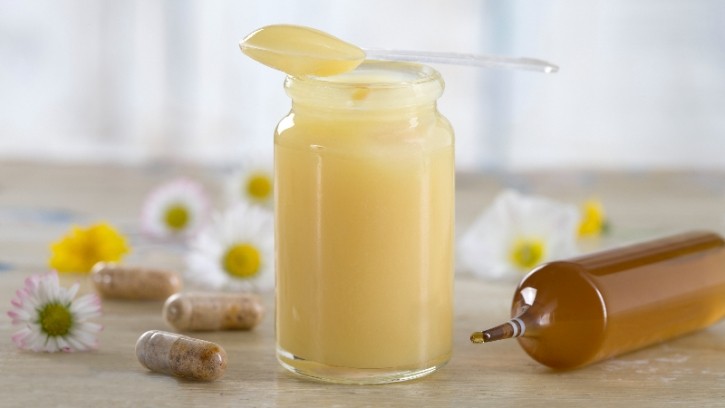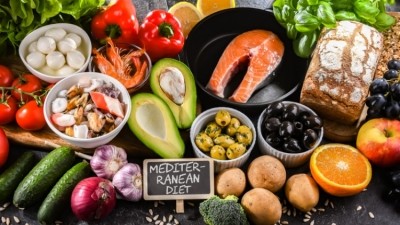Royal jelly consumption could improve cognitive function, stress and appetite of post-stroke patients – RCT

Post-stroke complications, including seizures, urinary and bowel incontinence, cognitive impairment, fatigue, mood changes, muscle wasting, and loss of appetite, typically occur within weeks to months following stroke.
Secreted by hypopharyngeal and mandibular glands of young worker bees, royal jelly (RJ) is an acid colloid with a pH level of 3.6 to 4.2.
Due to its multiple properties, such as antihypertensive, anti-ageing, anti-inflammatory, antioxidant, and antitumour, RJ is widely used in dietary supplements and functional foods.
As there remains a dearth of evidence regarding the benefits of RJ supplementation in people with ischemic stroke, researchers in Iran conducted a randomised placebo-controlled clinical trial to investigate the effects of RJ consumption on post-stroke complications.
From November 2021 to December 2022, 64 patients with a confirmed diagnosis of ischemic stroke, aged between 45 and 80, were enrolled in the trial.
Among them, 32 were randomly allocated to the RJ group and the other half to the placebo group to complete a 12-week intervention.
Each RJ dragee contained 30% of RJ powder (21mg of 10-hydroxy-2-decenoic acid (10-HDA), which corresponds to 1,000mg of fresh RJ), 53% of honey powder, and 17% of filler, while each placebo dragee comprised 53% of honey powder and 47% of filler.
Both RJ and placebo were manufactured by Iran-based company Kooze-asal Arya Ravis. The participants were instructed to take their assigned supplements after breakfast daily.
After 12 weeks of RJ consumption, the mini-mental state examination (MMSE) score was higher in the intervention group than the control group (17.16 vs 11.62).
It was also found that there was a 21.5% increase in MMSE score in the RJ group, and a 7.26% reduction in the placebo group pre-and post-intervention.
In addition, serum levels of brain-derived neurotrophic factor (BDNF), stress scores, and appetite significantly improved in the RJ group, compared to the control group.
However, beneficial effects of RJ consumption for fatigue, depression, anxiety, and mid-upper arm circumference (MUAC) were not observed.
“We found that RJ administration for 12 weeks in individuals with ischemic stroke was beneficial in improving cognitive function, serum levels of BDNF, stress, and appetite. However, the results were less favourable for MUAC and other domains of mental health, including depression and anxiety.
“Previous trials on this topic were limited, so our findings can extend the existing literature regarding the potential role of RJ. Nevertheless, they should be interpreted with caution owing to the preliminary nature of our investigation,” the authors wrote.
Alleviating impact on cognitive function
Post-stroke cognitive impairment reportedly occurs in over 80% of patients. Mood disorders, which negatively affect cognitive function, are much more prevalent in stroke patients compared to stroke-free individuals.
According to the researchers, RJ may improve cognition through various pathways with a network of interrelated mechanisms.
For example, RJ activates AMP-activated protein kinase (AMPK), leading to the suppression of microglial inflammation via inhibition of various apoptotic, inflammatory, and oxidative pathways.
At the sane time, RJ consumption is said to enhance the production of neurotrophins, such as BDNF and nerve growth factor (NGF), promoting synaptogenesis, neurogenesis, and acetylcholine production.
In this study, a significant increase in the serum levels of BDNF was found in the RJ group.
“This observation may in part justify an improvement of cognitive function after RJ consumption, since BDNF regulates the proliferation of dendritic arbor, axonal sprouting, and synaptic plasticity.
“10-HDA-related esters of RJ are reported to produce intracellular BDNF-like signals and also upregulate the mRNA expression of BDNF. Research using RJ to increase serum levels of BDNF in humans is scarce, and therefore, further attempts are needed.”
Further studies required to elucidate effects
Post-stroke fatigue has a prevalence rate ranging from 29% to 77%, and has been linked to negative consequences on activities of daily living, recovery and survival.
Although there was a 4.32-point decrease in the score of fatigue severity scale (FSS) after 12 weeks of RJ supplementation, it was not statistically significant.
Furthermore, post-stroke depression has been shown to increase long-term disability by 15% in ischemic stroke survivors, and malnutrition observed in up to 50% of patients.
This study indicated that RJ consumption led to an improvement in the score of stress, with less favourable findings for depression and anxiety.
“The therapeutic potential of RJ for psychological disorders is associated with various activities, such as binding with oestrogen receptors to modulate cell proliferation, counteracting neuroinflammation, scavenging free radicals, and mimicking the effect of BDNF,” the researchers explained.
Following the 12-week intervention, appetite of participants in the RJ group markedly improved by 5.64%, compared to 0.49% in the placebo group.
The increase in post-stroke appetite was accompanied by a tendency to higher macronutrient intakes, including total energy, carbohydrate, protein, and total fat, in the RJ group compared to the placebo group, though the identified difference was not statistically significant.
“Inflammation and oxidative stress play a part in the loss of appetite and the cascade of ischemic events in the brain area. Hence, reducing oxidative stress and inflammation subsequently leads to an improvement in appetite and dietary intake of patients.”
A triple-blind approach adjusted for potential confounders was used to control for possible sources of bias. However, it should be noted that the study was limited by the small sample size and single-centre trial design, which may affect generalisability of the findings.
“Further trials in a larger study population, and with a longer duration and/or different doses of supplementation can elaborate our understanding of possible dose-dependent and dietary intake effects of RJ,” the researchers concluded.
Source: Frontiers
https://doi.org/10.3389/fnut.2023.1227414
“Effects of the royal jelly consumption on post-stroke complications in patients with ischemic stroke: results of a randomized controlled trial”
Authors: Elham Karimi, et al











